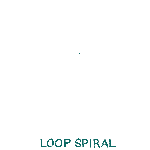How Would You Draw History?
 There’s an op-ed in today’s New York Times by Philosophy professor Crispin Sartwell entitled “How Would You Draw History?” that raises fundamental questions about historiography, which attempts to “describ[e] the forces that shape human events: history’s structure, its direction, its aim, its point and even its end.” Sartwell comments on the timeline of history in every elementary classroom: “Its ubiquity suggests that drawing history, trying to capture the shape of time graphically, on a page or in our imaginations, is fundamental to how we understand both the past and the future; we need to diagram history to grasp it, if it can be grasped at all.” One of the potential shapes Sartwell discusses, the Marxian/Hegelian dialectic that is the image at the top of this post, is one that I’ve also drawn on the board in class and that I asked you to think about as you work on your projects due this week.
There’s an op-ed in today’s New York Times by Philosophy professor Crispin Sartwell entitled “How Would You Draw History?” that raises fundamental questions about historiography, which attempts to “describ[e] the forces that shape human events: history’s structure, its direction, its aim, its point and even its end.” Sartwell comments on the timeline of history in every elementary classroom: “Its ubiquity suggests that drawing history, trying to capture the shape of time graphically, on a page or in our imaginations, is fundamental to how we understand both the past and the future; we need to diagram history to grasp it, if it can be grasped at all.” One of the potential shapes Sartwell discusses, the Marxian/Hegelian dialectic that is the image at the top of this post, is one that I’ve also drawn on the board in class and that I asked you to think about as you work on your projects due this week.
 The diagrams might also be helpful in posing this question of Climate Changed as you read — if you were going to draw a diagram that shows the shape of the book, what would that diagram look like? Is it a dialectical text? Is it a Big Bang? Is it a Loop Spiral? Is it something else? Why?
The diagrams might also be helpful in posing this question of Climate Changed as you read — if you were going to draw a diagram that shows the shape of the book, what would that diagram look like? Is it a dialectical text? Is it a Big Bang? Is it a Loop Spiral? Is it something else? Why?
Your Children’s Yellowstone Will Be Radically Different
Also as you read Climate Changed and think about Squarzoni’s multimodal/hyrbid effort to convince readers to behave differently, you might check out the NYT “Interactive Feature” from this week, written by Marguerite Holloway, with photos and videos by Josh Haner and maps by Derek Watkins: “Your Children’s Yellowstone Will Be Radically Different.”What are the similarities and differences in how Holloway and Squarzoni attempt to tackle their arguments about climate change? Do you think that the NYT interactive story is speaking to a very similar rhetorical situation as Squarzoni is, or do you think it’s very different? The medium is obviously different, but how about genre, audience, purpose?
This quote from the Times story hit me particularly hard: “By the time my daughter is an old woman, the climate will be as different for her as the last ice age seems to us.”
